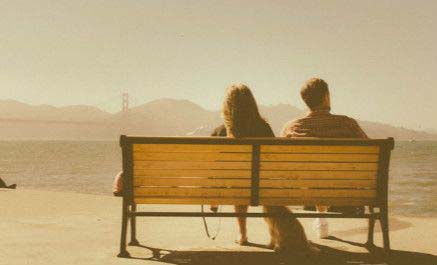Feeling Stuck in a Relationship? How to Move Forward — & Why, 2

As we saw in Part 1, feeling stuck in a relationship can be a major turning point in an individual’s life journey — so much so that it often has the character of a major life transition.

To confront and begin to move through the awareness of stuckness in a relationship is often a profoundly transitional event. It may result in the end of a relationship, but it will almost certainly result in a significant psychological shift in ourselves, quite possibly also in the other who is in the relationship with us, and in the transformation of the relationship itself.
Is It Them or Is It Me?
When I feel stuck in a relationship, how much of it stems from me, and how much from my partner? If, for instance, I become aware that my relationship always stays in “the shallows” or that it lacks passion, the question arises, what is my role in creating this stuck state? And how much stems from the way my partner is in the relationship?
Relationship and the Call to be Oneself
Psychology professor and Jungian Verena Kast has written about the inner archetypal image of the relationship of the creative and receptive (or “masculine” and “feminine”) elements that we all carry within our unconscious psyche. This is both an image of our inner psychic wholeness, and a reflection of what we’re looking for from a partner in relationship. Often the partner to which we’re attracted has particular strengths and qualities in areas where I experience a lack within myself, and, similarly, I have strengths in areas where they may experience a lack.
So far, so good. However, the problem comes in our need to separate or inner image of relationship, and our actual relationship with our partners, from the emotional impact of the experience of our parents and their relationship. This is what Kast and many others refer to as our parental complexes. We can think of a complex as a powerful emotional “knot” or “program” that can interfere with an emotional situation in which we’re involved, and can hijack our perception of the situation and our emotional response to it. Complexes can completely distort our view of a situation, and our response to it. Few complexes are more powerful than our parental complexes. And /a-midlife-transition knows that few situations involve the parental complexes more than our relationships.
Am I seeing my partner for who they actually are, or are my perceptions shaped by complexes based in experience of my mother and/or father? Opening up the complexes creating stuckness may require us to look at parts of ourselves that are not entirely easy to look at.

The Myth of the Sacred Marriage
Stuckness may take me to the archetypal core of why was I initially attracted to my partner.
Kast points out that, on the unconscious level we are all subject to relationship fantasies stemming from the mythological image of the sacred marriage. This archetype involves images of the marriage of the eternal masculine and feminine, often portrayed as a marriage of the gods. There is danger in identifying my relationship with the perfection of the sacred marriage, and in expecting my partner to live out these incredibly high ideals — as if he or she was a god.
Such a union of opposites is something that has to take place within my own being, and, viewed in that way, is one of the images of the journey to wholeness we call individuation.
To journey to wholeness we have to accept all of ourselves, strengths and flaws alike, and we have to accept our relationships for what they are, including where we feel stuck in a relationship. In this kind of therapeutic personal work, we confront our own real lives, and tke responsibility for them.
Brian Collinson, Registered Psychotherapist & Jungian Analyst
[cta]
PHOTOS: 
 © Sundaram Ramaswamy
© Sundaram Ramaswamy
© 2015 Brian Collinson, 2238 Constance Drive Oakville, Ontario (near Mississauga)
